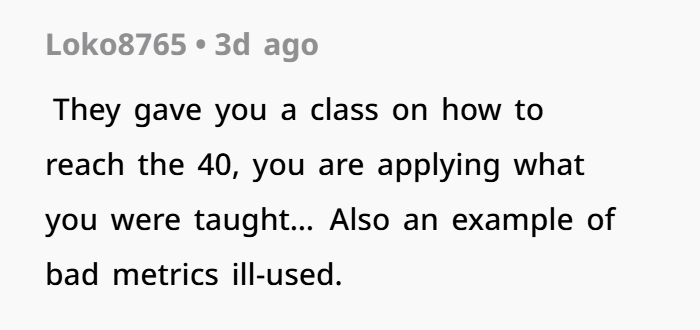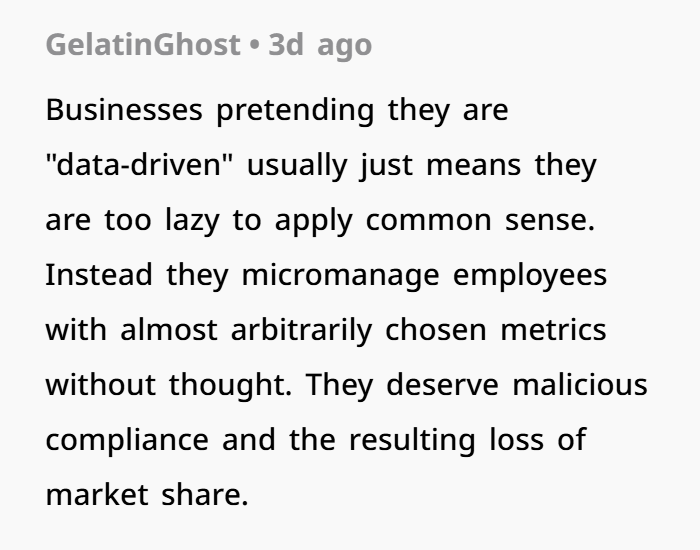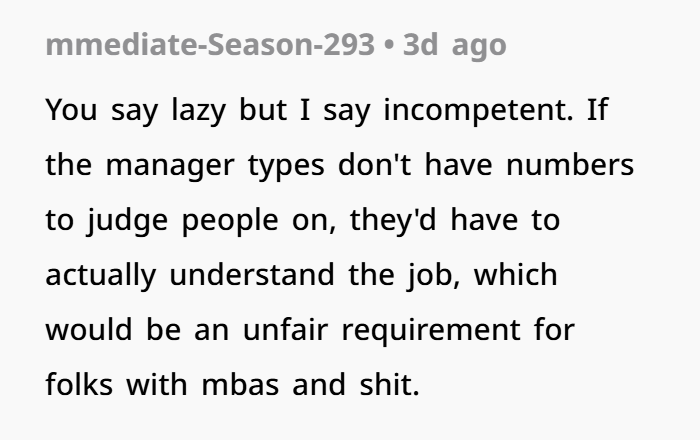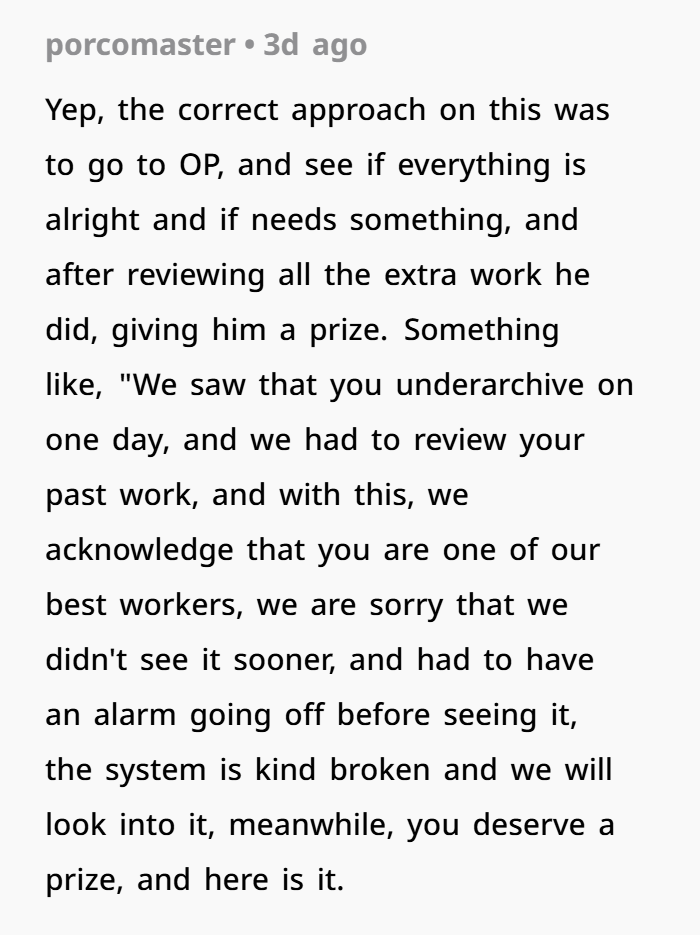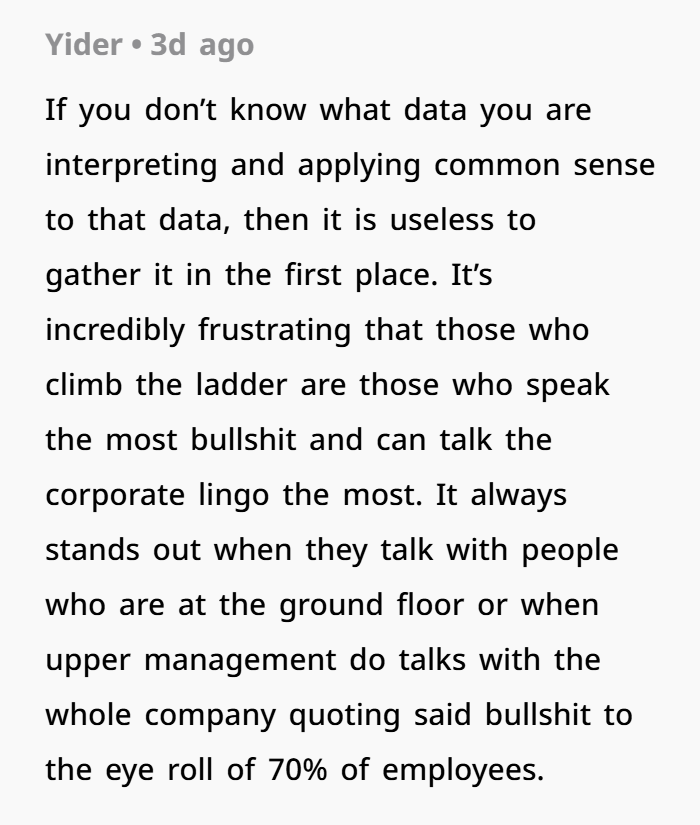Loyal Employee Penalized for One Mistake, Responds with Perfect Malicious Compliance
In a tale that perfectly captures the pitfalls of rigid corporate policy, an exceptionally dedicated employee faced undue reprimand after a single day of minor underperformance—despite a consistent two-year streak of exceeding expectations. Handling high-stress customer complaints, public relations issues, and legal matters, the individual regularly closed 50–55 cases a day, far beyond the required 40. However, a brief illness coupled with an unusually demanding caseload led to just 39 cases completed on one particular day. Instead of considering the employee’s stellar long-term record, management swiftly imposed mandatory remedial workshops typically reserved for chronic underperformers.
Feeling disrespected and undervalued, the employee decided to adapt their work ethic to match the company’s strict standards—handling exactly 40 cases per day and no more. While meeting expectations on paper, the sharp decline from overperformance led to noticeable operational strain within the company. Management, having grown dependent on the employee’s previous output, found themselves grappling with the consequences of their short-sighted decision, even contemplating hiring additional managers to fill the productivity gap.
The man spent every single day overperforming at his company for two years

But the moment he slipped by just one task and got punished, he decided he was done
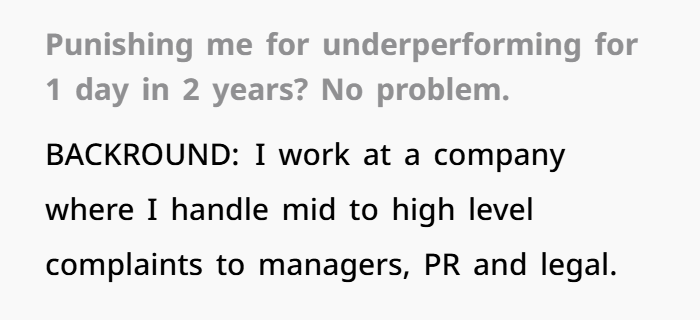
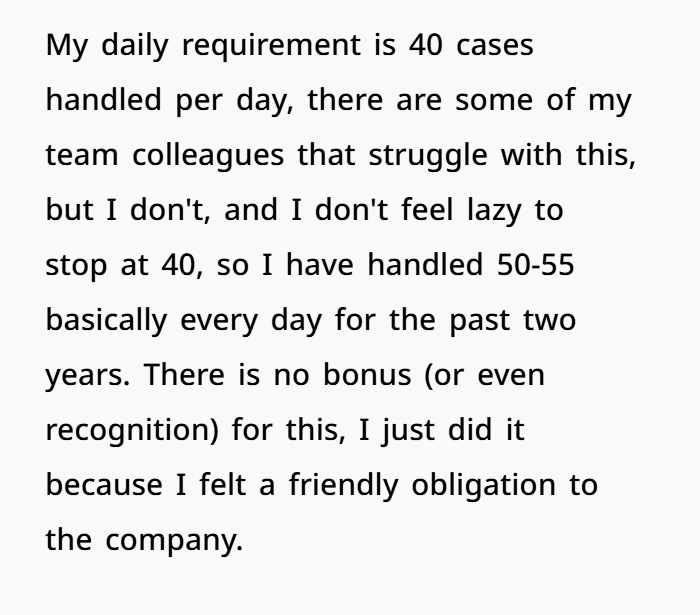
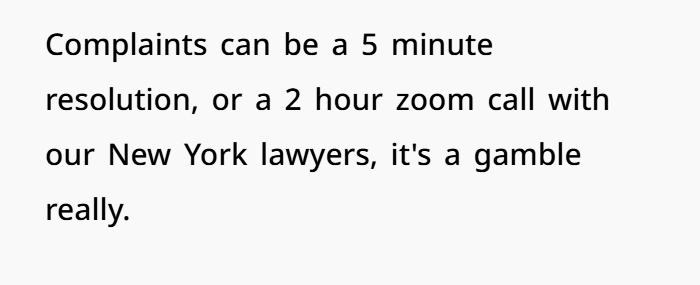
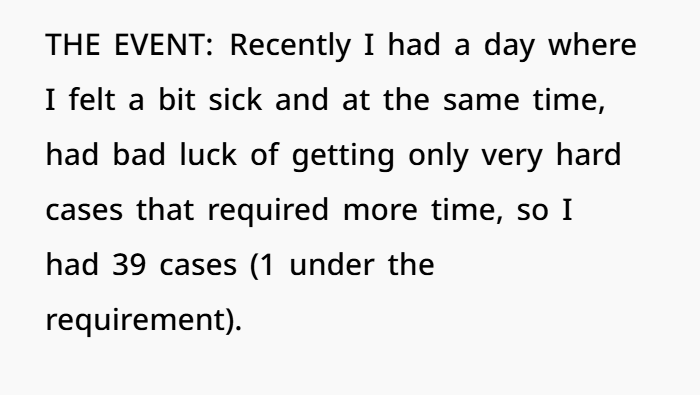
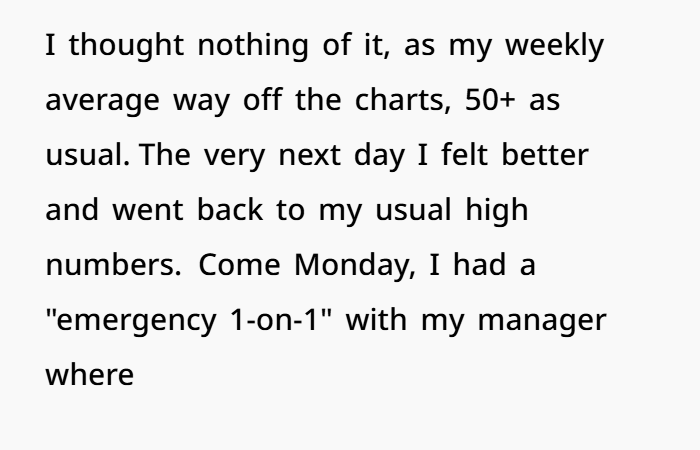
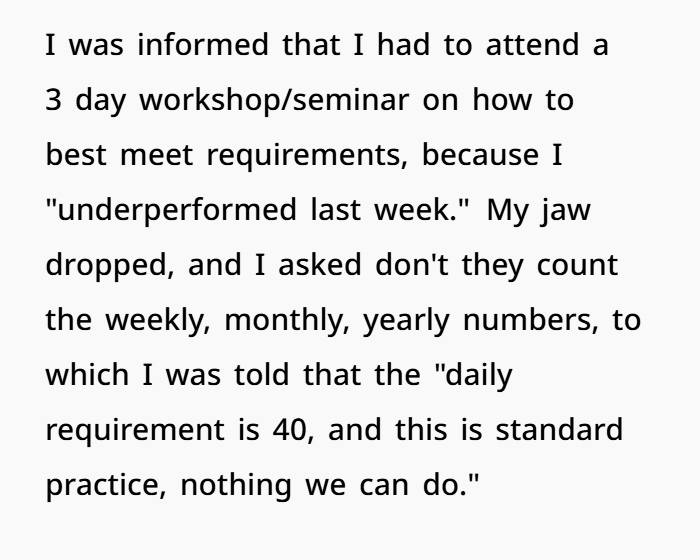
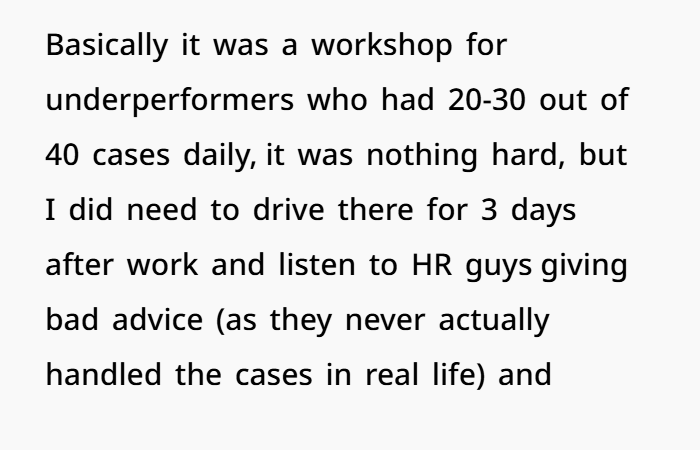
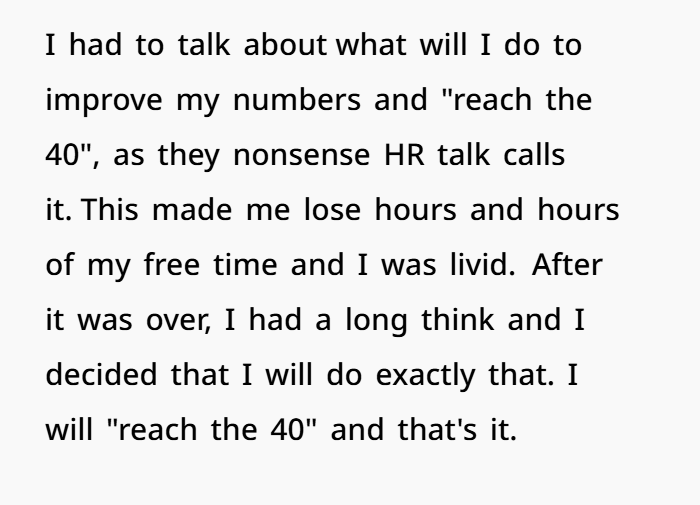

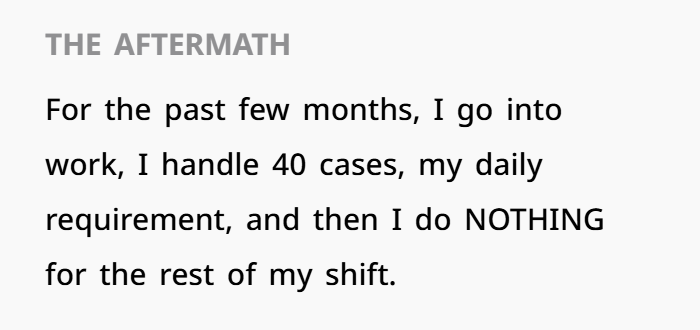
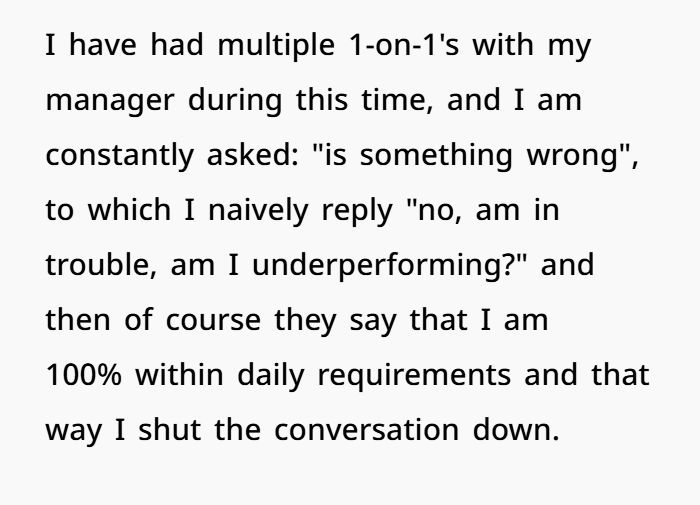
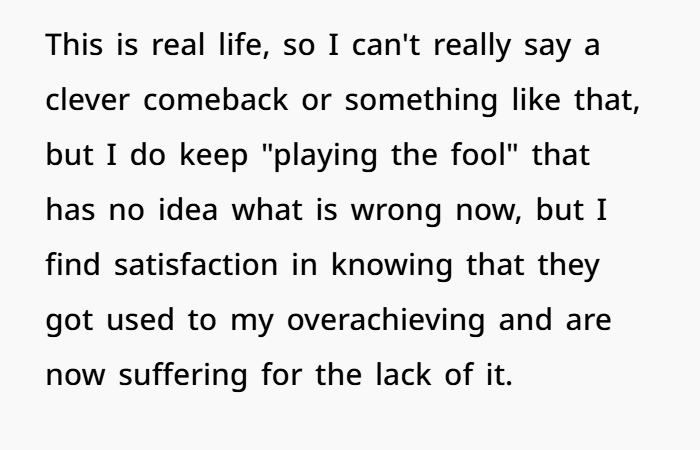
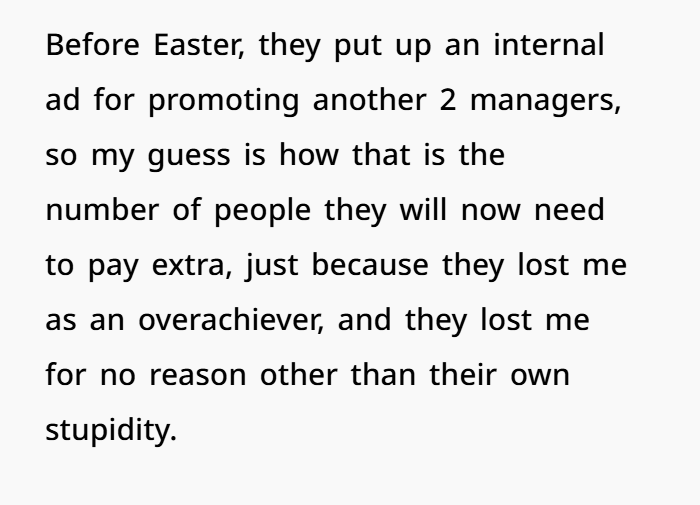
Rigid performance management systems that prioritize daily quotas over long-term contributions often backfire, damaging employee morale and retention rates. In this case, the company’s failure to recognize sustained high performance echoes broader trends documented in studies on employee engagement and motivation by Gallup, which highlight that consistent recognition is crucial for maintaining productivity.
Punitive measures for isolated incidents, particularly in high-stakes roles involving complex complaint handling and legal disputes, undermine trust and loyalty. Research from the Harvard Business Review indicates that effective accountability requires context and understanding—not blanket enforcement of metrics. Failing to differentiate between chronic underperformance and rare off-days leads to what psychologists term “perceived organizational injustice,” a significant driver of workplace disengagement.
Moreover, forcing high performers to attend remedial training designed for consistently underachieving staff risks what human resources experts call “quiet quitting”—a phenomenon where employees meet the minimum job requirements without exerting any discretionary effort. This trend has gained visibility, particularly post-pandemic, as covered by Business Insider, highlighting how companies suffer when previously motivated employees become disillusioned.
Financially, the loss of an overperformer can have a profound impact. Data from the Society for Human Resource Management (SHRM) reveals that the cost of replacing a single employee can amount to six to nine months of their salary, considering recruitment, training, and lost productivity. Therefore, the company’s decision to invest in new managerial hires to compensate for the productivity loss might not just be inefficient but economically detrimental.

In high-CPC sectors such as corporate leadership training, employee retention strategies, and human capital management, companies are increasingly advised to shift from rigid, punitive models toward more flexible, appreciative leadership approaches. Studies in organizational behavior affirm that adaptive performance evaluation frameworks that account for both quantitative and qualitative outcomes significantly enhance employee lifetime value (ELTV).
Ultimately, the company’s misstep serves as a cautionary tale: when businesses fail to nurture their most committed employees, they inevitably pay a higher price—both in operational efficiency and cultural health.
Readers were shocked by how the man was treated and shared how they learned loyalty doesn’t always pay off
